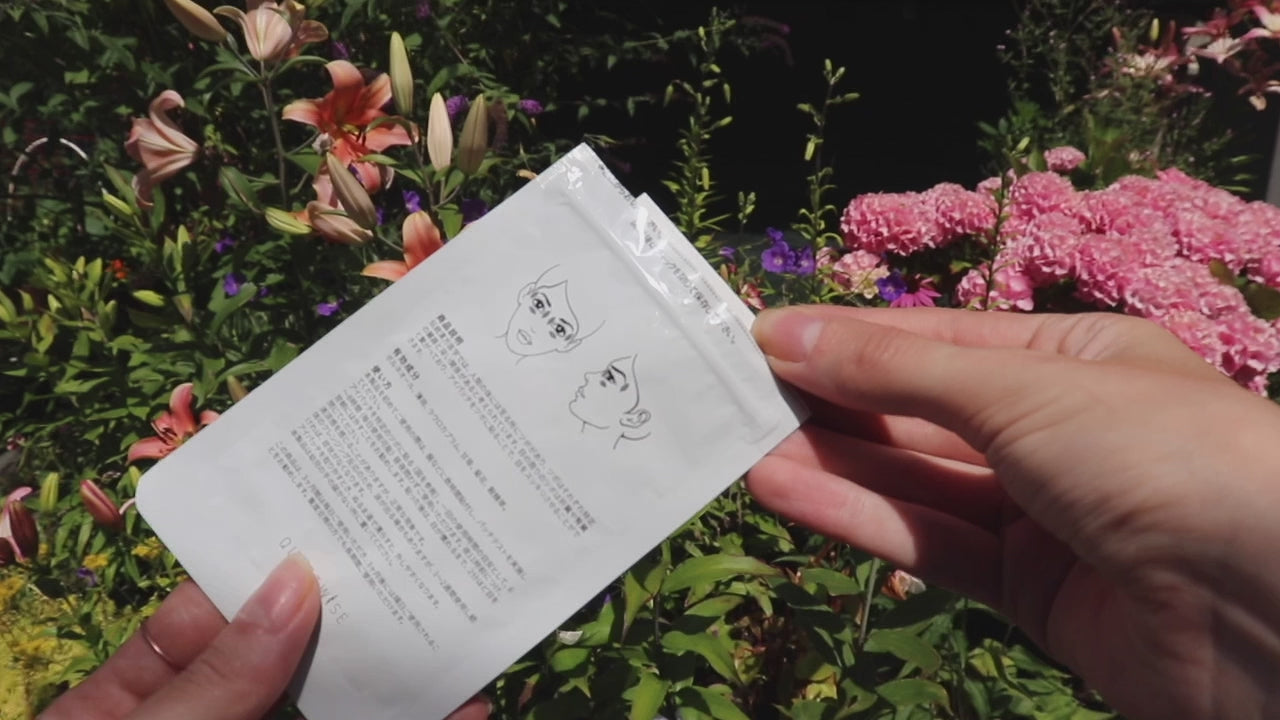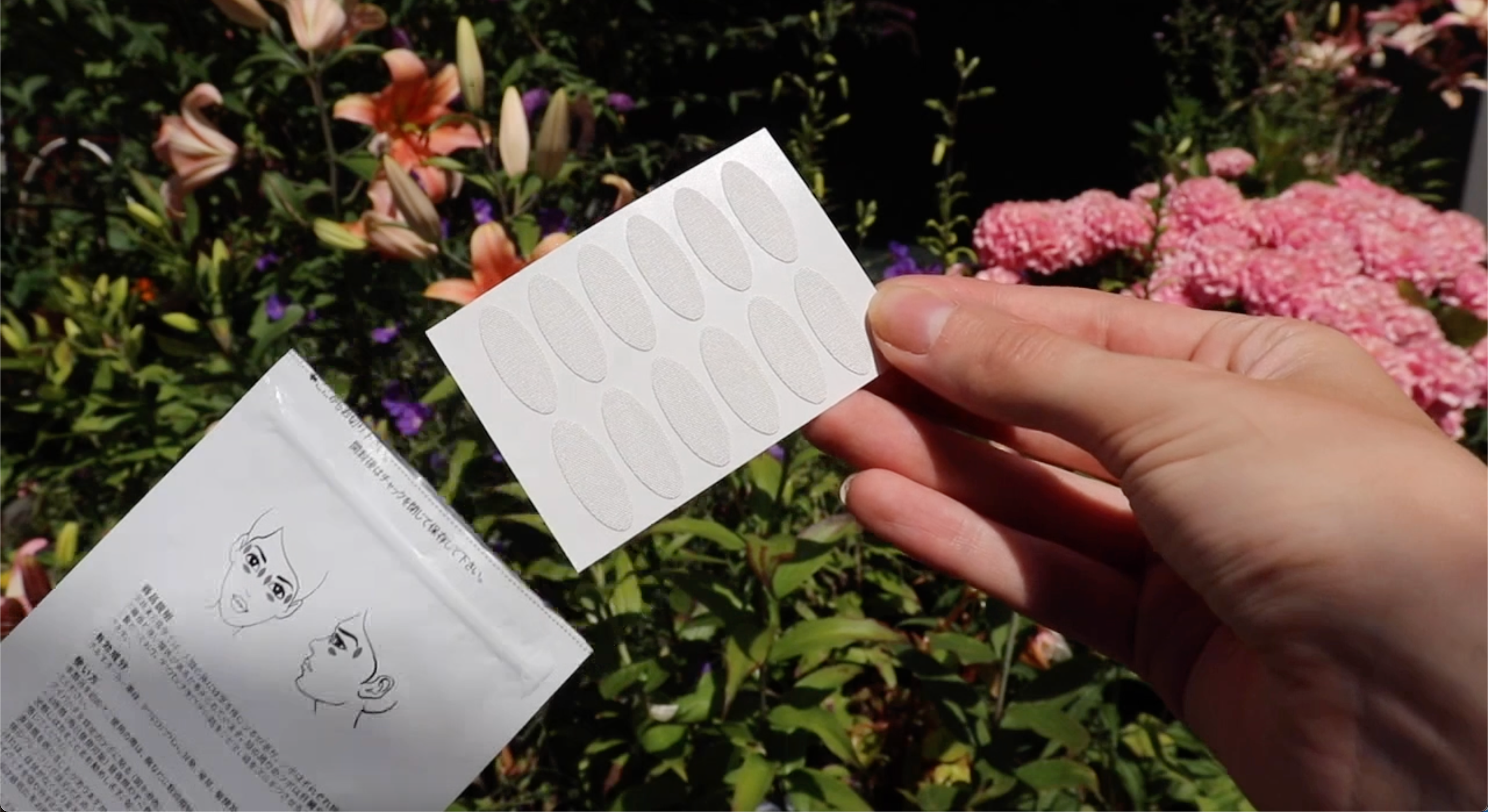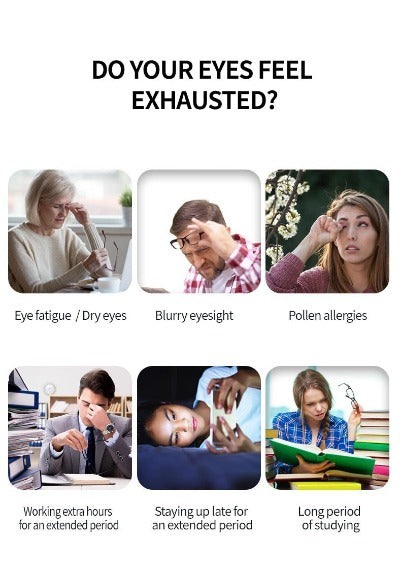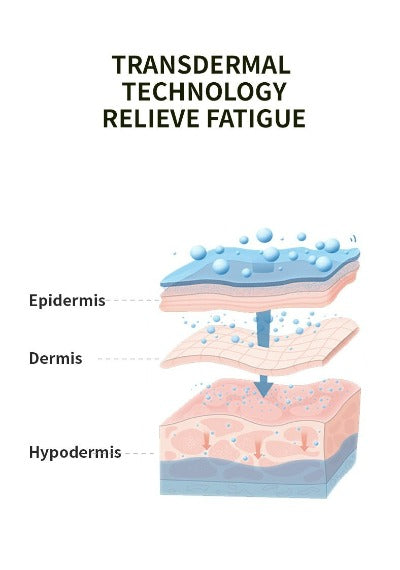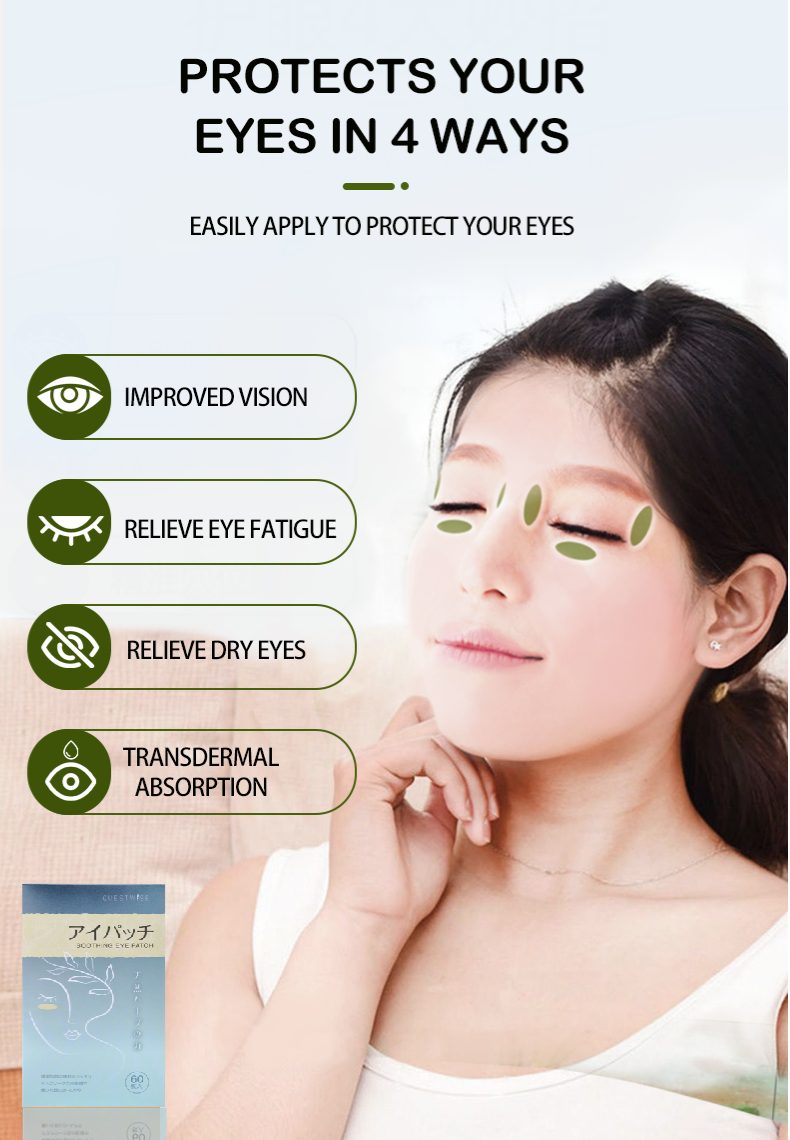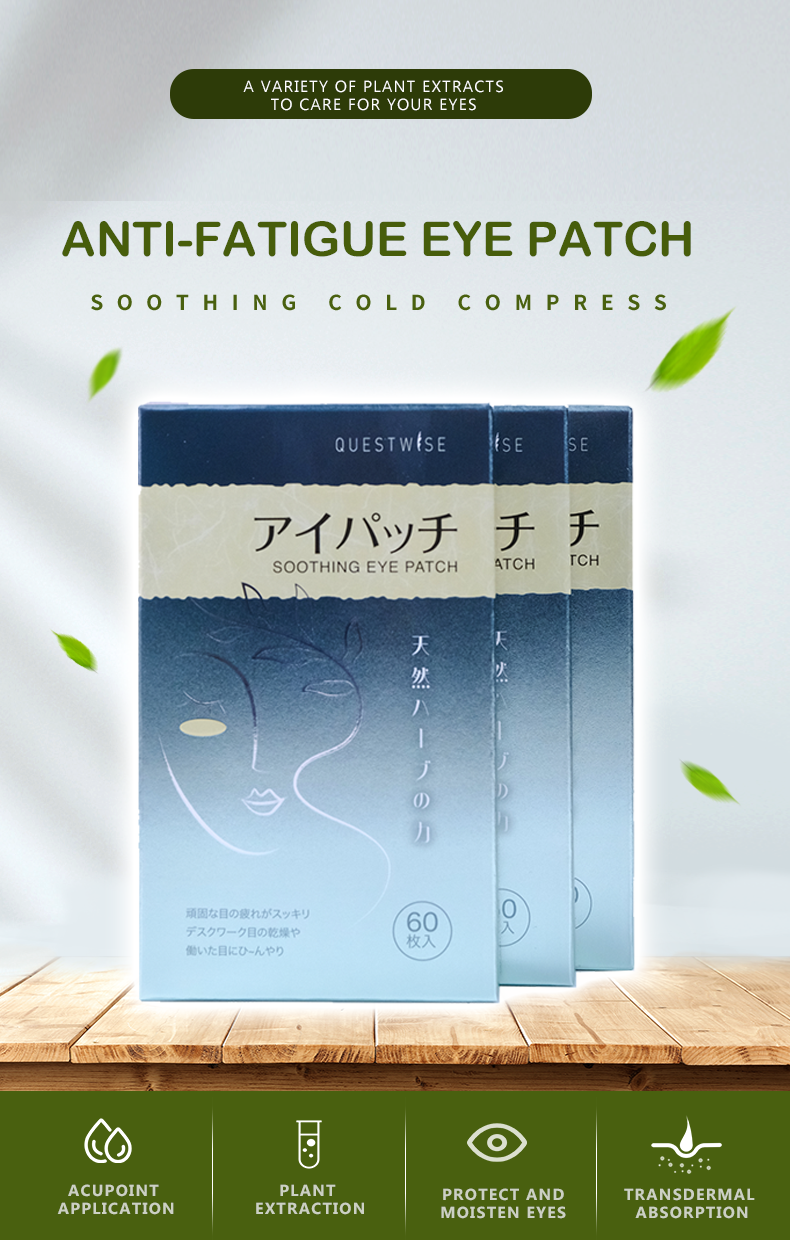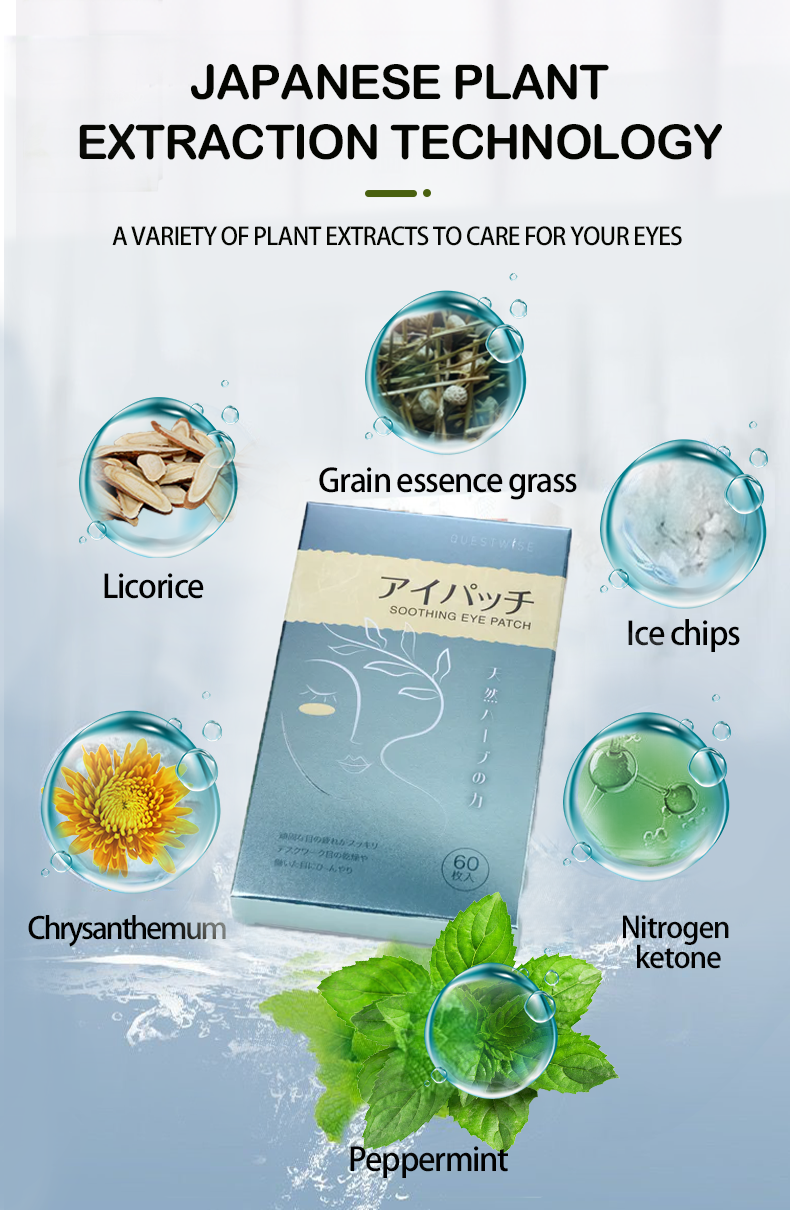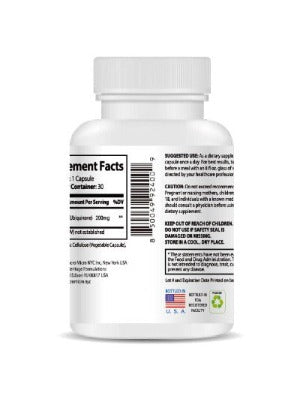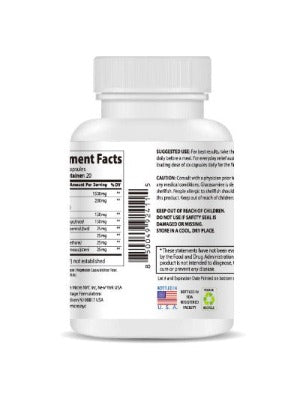Can Hay Fever Eye Itch Cause Long-Term Eye Problems? A Comprehensive Guide
Hay fever, the bane of many a spring and summer, is more than just a runny nose and incessant sneezing. For a significant number of sufferers, the most bothersome symptom is the persistent, maddening itch in the eyes. This seemingly minor irritation, however, can have far-reaching consequences if left unaddressed. In this comprehensive guide, we delve into the potential long-term effects of hay fever eye itch, exploring the underlying causes, associated risks, and effective management strategies. We'll also introduce a revolutionary product designed to soothe and protect your eyes from the relentless assault of allergens.
The Science Behind the Itch: Unraveling the Allergic Response
Hay fever, also known as allergic rhinitis, is triggered by an overreaction of the immune system to airborne allergens such as pollen, mold spores, pet dander, and dust mites. When these allergens come into contact with the mucous membranes of your eyes, a cascade of events is initiated. Your body releases histamine and other inflammatory mediators, leading to the classic symptoms of hay fever, including itchy, watery, and red eyes. The conjunctiva, the delicate membrane lining the inside of your eyelids and covering the white part of your eye, becomes inflamed and irritated, causing that persistent, almost unbearable itch.
The severity of the allergic response varies considerably among individuals. While some experience a mild, transient itch, others suffer from intense, prolonged irritation that severely impacts their daily lives. The constant urge to rub the eyes—a seemingly instinctive reaction—is where the potential for long-term problems arises.
The Dangers of Chronic Rubbing and Irritation: A Recipe for Eye Damage
The thin, delicate skin around the eyes is particularly vulnerable to damage. The seemingly innocent act of rubbing your eyes to alleviate itching can have severe repercussions. Chronic rubbing can lead to a range of complications, including:
- Exacerbated Inflammation: The friction from rubbing introduces further irritation, prolonging and intensifying the inflammatory response in the conjunctiva. This creates a vicious cycle where the itching worsens, leading to more rubbing, and so on.
- Conjunctivitis: Persistent inflammation of the conjunctiva can lead to conjunctivitis, commonly known as pinkeye. While most forms of conjunctivitis are self-limiting, repeated bouts due to chronic rubbing can increase susceptibility to more serious infections.
- Dry Eye Syndrome: The constant rubbing disrupts the delicate tear film, which is crucial for lubricating and protecting the eye's surface. This can lead to dry eye syndrome, characterized by dryness, burning, irritation, and blurry vision.
- Corneal Abrasions: The cornea, the transparent front part of the eye, is remarkably sensitive. Vigorous rubbing can easily scratch the cornea, resulting in painful abrasions that can blur vision and increase the risk of infection. In severe cases, these abrasions can progress to corneal ulcers, requiring intensive medical treatment.
- Blepharitis: Chronic inflammation can extend to the eyelids, causing blepharitis, characterized by redness, swelling, crusting, and irritation of the eyelid margins. This condition can be uncomfortable and difficult to treat.
Beyond these immediate concerns, long-term inflammation associated with untreated hay fever eye itch can potentially contribute to more serious conditions affecting the deeper structures of the eye. While rare, such complications highlight the importance of taking even seemingly minor eye irritation seriously.
Effective Management Strategies: A Multi-Faceted Approach
Effectively managing hay fever eye itch requires a multi-pronged approach focusing on prevention, symptom relief, and proactive care. Here's a breakdown of effective strategies:
- Allergen Avoidance: Minimizing exposure to allergens is crucial. This involves staying indoors during peak pollen seasons, using air purifiers with HEPA filters, washing bedding frequently, and potentially considering allergy-proof bedding and window treatments.
- Over-the-Counter Medications: Antihistamines (both oral and eye drops) are effective in reducing the production of histamine, the primary culprit behind allergic symptoms. Mast cell stabilizers offer another approach, preventing the release of histamine and other inflammatory mediators. Consult your doctor or pharmacist for appropriate recommendations.
- Cold Compresses: Applying cool compresses to the eyes can help reduce inflammation and provide temporary relief from itching. Keep the compresses cool by regularly changing them or using a cold pack.
- Artificial Tears: These lubricating eye drops can replenish the tear film, alleviating dryness and discomfort associated with hay fever. Use artificial tears as needed, especially when symptoms are severe.
- Therapeutic Eye Products: For targeted relief from inflammation and irritation, consider the power of Wise Quest Soothing Eye Patches. Harnessing the power of traditional Chinese herbal medicine, these patches provide fundamental relief from eye fatigue, dryness, astringency, redness, and swelling caused by allergens and long hours in front of screens. They promote healthy blood circulation, helping to alleviate eye discomfort and disease.

The Wise Quest Soothing Eye Patches represent a significant advancement in soothing irritated eyes. Unlike harsh chemicals, these patches use the gentle power of nature to combat inflammation and promote healing, leading to healthier, more comfortable eyes. They are an ideal complement to any hay fever management plan.
When to Seek Professional Help: Recognizing Warning Signs
While many cases of hay fever eye itch can be managed effectively at home, there are instances when seeking professional medical help is essential. Consult an ophthalmologist or optometrist immediately if you experience any of the following:
- Severe or persistent eye pain
- Blurred or decreased vision
- Significant redness, swelling, or discharge from the eyes
- Increased sensitivity to light (photophobia)
- The feeling that something is in your eye
- Any signs of infection (pus or yellow discharge)
These symptoms could indicate a more serious condition that requires prompt medical attention. Early diagnosis and treatment can prevent long-term complications and protect your vision.
Conclusion: Protecting Your Vision from the Effects of Hay Fever
Hay fever eye itch, although often considered a minor inconvenience, can have serious consequences if left unchecked. The constant itching and rubbing can lead to a range of eye problems, from minor irritation to more serious conditions like corneal abrasions and dry eye syndrome. By understanding the underlying causes of hay fever and employing effective management strategies, including allergen avoidance, medication, and soothing eye therapies like Wise Quest Soothing Eye Patches, you can effectively protect your eyes and preserve your vision. Remember that proactive management and prompt medical attention are key to maintaining healthy, comfortable eyes throughout allergy season.



